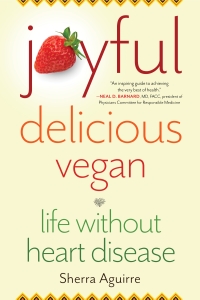Holistic Heart Disease Prevention and Reversal – The Ornish Program
This month on the anniversary of my very first newsletter, I want to refocus on how we can prevent or reverse heart disease, our number one killer, which is now on the rise for people under the age of 40. Many of you know that I reversed my own symptoms of heart disease with a whole food plant-based diet. I was particularly motivated by my family history of high blood pressure, strokes, and heart attacks after we began to lose younger family members as a result.
The Dean Ornish lifestyle program is very similar to the plan developed by his contemporary and fellow pioneer of diet and lifestyle cardiac intervention, Dr. Caldwell Esselstyn, whose plan I followed. Both can prevent or reverse the symptoms of cardiovascular disease. With over nearly four decades of data and published studies, the Ornish Program is currently the only intensive cardiology lifestyle program covered by insurance companies and even Medicare. The results for people in this program for just one year are just as good or better than those on standard heart medications, with none of the side effects.
In my book, I compare the Esselstyn and Ornish diet recommendations and plans. Although each focuses first and foremost on what we eat, the primary difference is that the Ornish program specifically includes more emphasis on lifestyle, stress, and emotional aspects of reversing the disease and its symptoms. Let’s look at the Ornish program’s four pillars of heart health, which by the way, also help protect us from most other chronic diseases:
1. What You Eat
The Ornish program is vegetarian and not strictly vegan because it allows egg whites and one cup of non-fat milk or yogurt per day. These are the only animal foods allowed, but not recommended, whereas the Esselstyn plan is all plant-based. Smoking and alcohol are prohibited because of their negative impact on the heart. Both plans emphasize eating whole plants, including grains, fruit, legumes, vegetables, herbs, and limited amounts of nuts because although healthy, their fat content is high. Click here for my list of 10 heart-healthy superfoods recommended in both plans.
2. How You Manage Stress
Stress management activities are a focus of the Ornish program, including stretching, breathing techniques, yoga, meditation, visualization practices, and relaxation skills. Although the Esselstyn plan recognizes stress management as important, in the Ornish program, there are specific recommendations and stress reduction exercises.
3. How Much You Move
The thing to focus on here is not how long or hard you work out but how frequently you move enough to get your heart rate up each day. You get more health benefits from three or four short periods of activity throughout the day than you do from sitting at a desk all day and stopping at the gym for an hour-long workout on the way home. Strenuous workouts are effective for competitive athletic training but are not the best way to build or maintain heart health. Activities like gardening, dancing, walking, swimming, yoga, exercises, or any activity or combination you enjoy will help make your heart healthier if done 3-5 hours per week in total.
4. How Much Love and Support You Have
Although it’s long been said that married couples tend to live longer, having a number of positive, loving, and supportive relationships of various types in your life provides similar and important health benefits:
-
Spending time with and staying in touch with family members is a way many of us find emotional support and enjoyment.
-
Having a group of friends that you see or interact with regularly is a boost to your immune system and your overall health.
-
Joining a social group based on your interests and participation in activities or projects that are meaningful to you also builds a sense of community and connection.
-
Attending religious gatherings or sports events also provides a feeling of belonging and being part of something greater.
-
Surprisingly, according to a randomized peer-reviewed five-week study, writing love letters about our affection for someone can lower our LDL or “bad” cholesterol levels!
What the Ornish and Esselstyn plans offer is not based on a drug or procedure to manage but not cure heart disease and other chronic illnesses, nor will it introduce troubling side effects which may require more drugs. They instead offer a prescription for science-based food and life skills that allow our bodies to heal by providing what they need to thrive naturally. Click [here] to find out if your insurance plan includes the Ornish Lifestyle Program. The plan is described in detail in his book, UnDo It! (Dean Ornish MD and Anne Ornish, 9970978052547, Ballantine Books, 2019), and includes lots of great recipes.


